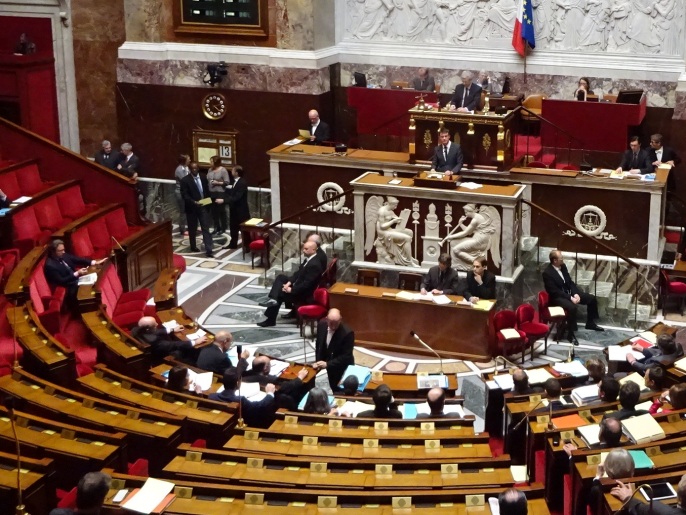The French parliament voted on Friday on a controversial bill against separatism, which it says targets "radical Islam" and was adopted once and for all, but it was harshly criticized by both left and right.
After 7 months of debate between Parliament and the Senate, the deputies approved the text of "respect for the principles of the republic" presented as a remedy for what it believes to be "Islamist control" of society, by 49 votes in favour, 19 against and 5 abstentions.
Leftist Jean-Luc Melenchon tried to defend a recent proposal against the law "on the grounds of anti-Islam," but the head of the special committee, François de Rugy (from the president's party), replied that the text of the law "is of general scope and does not deal with relations with one religion."
This text, backed by Interior Minister Gerald Darmannan, includes a set of measures around the neutrality of public services, combating online hate, protecting public servants and teachers, overseeing family education, strengthening oversight of associations, improving the transparency and financing of religious practices, and even combating polygamy and forced marriage.
Representatives from the left and the right voted against the text for various reasons.
The Socialists, in particular, see it as evidence of "distrust of associations", while the right considers it "adding measures" without "ambition" in order to "defeat the Islamists."
It should be noted that the extreme right has abstained from voting.
This text faced a severe attack from some leaders and Islamic movements all over the world, especially Turkey led by President Recep Tayyip Erdogan, which caused months of tension between Paris and Ankara.
The vote on the law - which was pushed by President Emmanuel Macron - comes amid a campaign carried out by the authorities against Islamic entities in the country.
The text criminalizes "isolationist" tendencies, imposes strict control over the activities of religious and cultural associations, and stresses the principle of "religious neutrality" for public sector employees.

